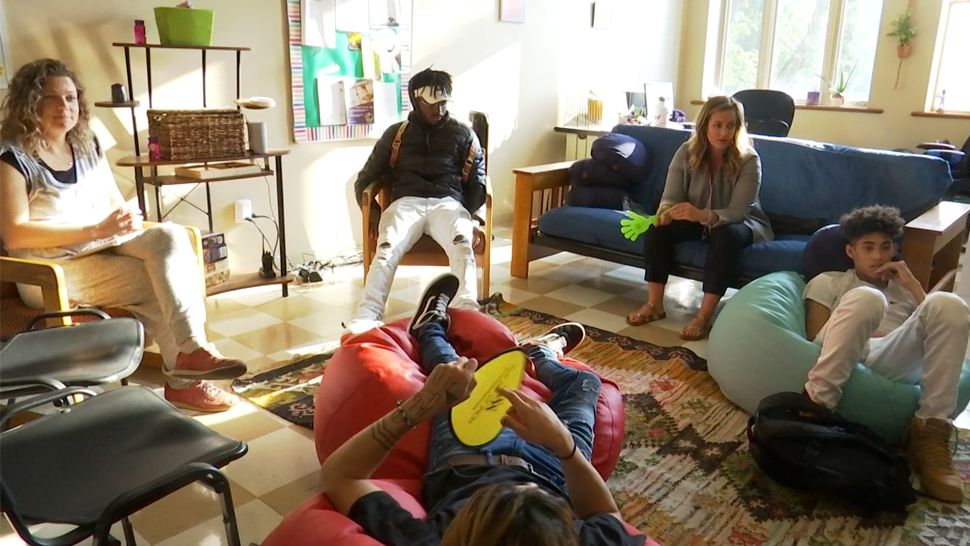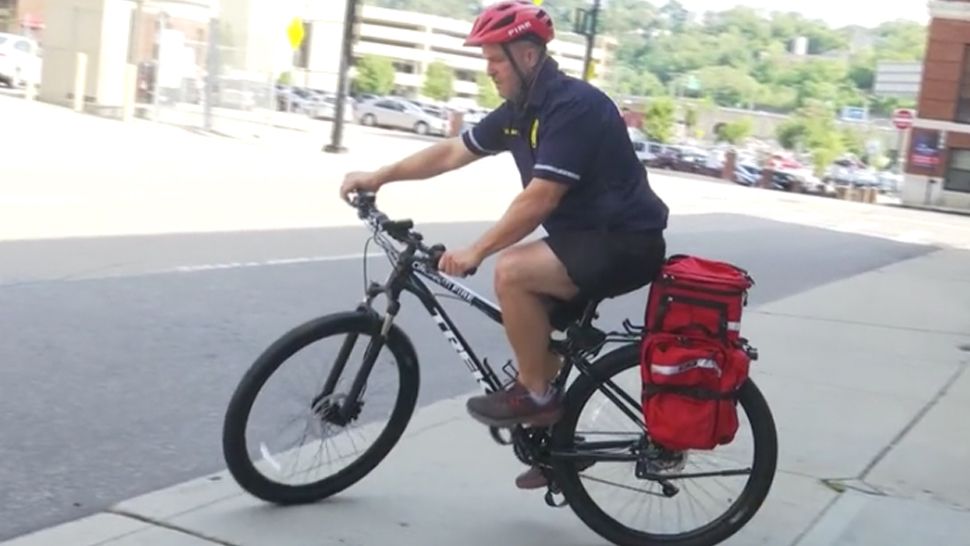CLEVELAND, Ohio—The men and women of the Canton Police and Fire Departments try to stay prepared for just about any situation.
- Canton’s 3-day Rescue Task Force training is being done with the help of the Traumatic Players of Cleveland, a group of volunteers who play victim in different mass casualty scenarios
- The Traumatic Players of Cleveland has a volunteer database of 700 people who are emailed before an emergency drill, and can choose to participate
- First responders say having actual “victims” instead of mannequins helps them better prepare for these scenarios
They’re currently going through a series of trainings that they say will improve the way they respond to crisis incidents moving forward.
“In EMT school we learned we don’t do anything until the scene is safe. What we find with these big incidents is that we really can’t do that anymore because people die when we wait,” said Pat Bodnar, captain and EMS coordinator. “The training is different now, the mindset is different now, we are moving into areas to take people out that we can actually save.”
Their 3-day Rescue Task Force training is being done with the help of the Traumatic Players of Cleveland, a group of volunteers who come play victim in different mass casualty scenarios.
On Wednesday, the group assisted with an active shooter and hostage situation drill.
“This is really big for us,” said Bodnar. “I can kind of equate it to fire training without real fire with dummies or when we're doing it with just imaginary people or what, when we actually have real people that are made up. Unbelievably made up to look like they really have injuries.”
“The biggest thing we talk about in our Traumatic Players group is let them get it wrong now, so when it’s a real scenario they get it right and they won’t mess up and they know what to do, we try to make it as real for them as possible,” said Kristen Filkins, Traumatic Players of Cleveland.
The group spends hours preparing themselves and the scenes for the first responders.
“The makeup, you set everything up, you organize who's going to get shot where or injured where, and then it's just a matter of quickly people moulage people, and then being done,” said Colleen Drews, executive director, Traumatic Players of Cleveland.
The Traumatic Players of Cleveland has a volunteer database of 700 people who Davis has connected with over the past 10 years.
She emails them before an emergency drill, and they can choose if they want to participate.
Kristen Filkns has been a part of the group for over a year and she says not only is she giving back to those who serve her community, it’s a learning experience for her as well.
"I am an EMT myself, I use what they do to me and I take it and use it in real scenarios when I’m out with a patient myself,” said Filkins.
“Role playing is you’re given a scenario, and you just have to go with it because it can change any second, sometimes they throw in different scenarios for these first responders, they think they have the shooter down and they relax a little bit and they hear shots fired, because a second shooter has walked in the building. And everything changes,” said Joe Jarzynski, Traumatic Players of Cleveland.
Volunteer Joe Jarzynski says unfortunately mass shootings are something that just about everyone has to be prepared for.
“Now this has become our society’s reality. The more society can help first responders train for these scenarios, the better chance they have at stopping them or at least saving some lives,” said Jarzynski.
Davis says the demand for the Traumatic Players of Cleveland to be a part of law enforcement and first responder trainings across the state has doubled over the past year.
“We kind of thought, oh it’s fun to be able to help with the first responders or play hostages, but now, we have to be serious about what's going on with society, and if we can help one more person like survive because the police were able to get in because they've trained this way,” said Drews.
The Traumatic Players of Cleveland have recently been invited out of state to assist other first responders in their crisis trainings.








